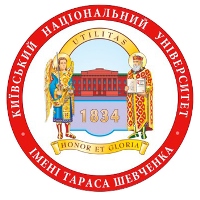SYNTACTIC ASPECTS OF THE FOREIGN LANGUAGE TEACHER’S SPEECH: A CASE OF LINGUISTIC PROFESSIONAL PROFILING
DOI:
https://doi.org/10.17721/folia.philologica/2024/7/6Keywords:
linguistic profiling, English language teacher, verbal communication, English-language novel, complex and composite sentences, verbal suggestionAbstract
The article examines the issue of linguistic profiling of individuals through the lens of their career and language competence. The author aims to identify a set of characteristic speech markers typical of the real and virtual English language teachers and contrasts the results obtained. Thus, the present study is methodologically based on the original English-language novels where the English language teachers are depicted as characters, on the one hand, and on a field experiment conducted personally by the author and involving two Ukraine-originating teachers of English from Odesa lyceums. Having analysed the notions of professional image and speech portrait, the author outlines the English language teacher’s speech status in society in general and proves them to be representatives of the elite social stratum. The study has an uncontestable scientific novelty since it has revealed that whilst the real teachers of English from Ukraine and their colleagues described in the original English-language novels demonstrate similar syntactic sentence types in verbal communication, the differences are also quite striking and possibly rooted in the national mentality. Thus, a conclusion has been made that virtual English teachers prefer encoding their information in complicated sentences, using syntactic complexes, whereas the real teachers of English from Ukraine, unfortunately, neglect this way of minimizing speech efforts, and employ more complex and composite sentences instead. Another interesting discovery is the virtual teachers’ tendency to ask several tag-questions in a row, which can be seen as a way of verbal suggestion to a certain answer by the interlocutor. Mistakes being far from typical in the speech of both groups, the Ukrainian teachers of English may still deviate from the traditional rules of word order and overload the linear length of their sentences. Regarding the perspectives of the study, the author plans to contrast the speech of virtual English teachers with that of real English teachers from the English-speaking countries, both male and female, and to add the levels of phonetics and vocabulary to the scope of analysis.
References
Voyat, L. (2015). Yednist movy i myslennya yak samostiynykh protsesiv z riznymy zhyttyevymy funktsiyamy [Unity of language and thinking as independent processes with different life functions]. In: V. Cherney, S. Husarev, & S. Chernyavskyy (Eds.). Ukrayinska mova v yurysprudentsiyi: stan, problemy, perspektyvy: materialy XI Vseukr. nauk.- prakt. konf., Kyiv, 27 lystop. 2015 r. 224–226. Kyiv : Natsionalna akademiya vnutrishnikh sprav [in Ukrainian].
Hrabovskyi, S. (2011). Imidzh [Image]. Entsyklopediya suchasnoyi Ukrayiny, 1, 1–2. Kyiv: Instytut entsyklopedychnykh doslidzhen [in Ukrainian].
Dzhedzhera, K. (2017). Definitsiyi “dilove spilkuvannya”, “profesiyne spilkuvannya”, “profesiyne dilove spilkuvannya” u terminolohichnomu tezaurosi stosovno komunikatyvnoyi pidhotovky studentiv [Definitions of “Business communication”, “Professional communication”, “Professional business communication” in the terminological thesaurus regarding communicative training of students]. Onovlennya zmistu, form ta metodiv navchannya i vykhovannya v zakladakh osvity [Updating the content, forms and methods of teaching and upbringing in educational institutions], 17, 197–201 [in Ukrainian].
Diak, T. (2019). Tekhnolohiyi profaylinhu v slidchiy diyalnosti [Profiling technologies in investigative activity]. Kyiv: Naukova laboratoriya z problem psykholohichnoho zabezpechennya ta psykho-fiziolohichnykh doslidzhen [in Ukrainian].
Mytseva, O. (2018). Profesiynyy imidzh fakhivtsya: sut, funktsiyi, struktura [Professional image of a specialist: essence, functions, structure]. Pedahohika ta psykholohiya [Pedagogy and Psychology], 59, 191–200 [in Ukrainian].
Morozova, I., & Marchenko, V. (2022). Verbalni zasoby obektyvizatsiyi movlennyevoy mimikriyi (na materiali kinostrichky “Catch Me if You Can”) [Verbal means of objectifying speech mimicry (on the material of the film “Catch Me if You Can”)]. Zakarpatski filolohichni studiyi [Transcarpathian Philological Studies], 23 (1), 155–160. https://doi.org/10.32782/tps2663-4880/2022.23.1.30 [in Ukrainian].
Rul, Yu. (2013). Psykholohichnyy profaylinh – nova osvita u MAUP [Psychological profiling – a new education at MAUP]. Naukovyy zhurnal “Psykholohiya” [Scientific journal “Psychology”]. Retrieved from: http://medpsyhology.pp.ua/psiholog-profiling [in Ukrainian].
Morozova, I., & Yartseva, O. (2022). Linhval’ni pryntsypy profilyuvannya virtual’noyi osobystosti [Linguistic principles of virtual personality profiling.]. Aktual’ni pytannya humanitarnykh nauk: mizhvuzivs’kyy zbirnyk naukovykh prats’ molodykh vchenykh Drohobyts’koho derzhavnoho pedahohichnoho universytetu imeni Ivana Franka [Topical Issues of the Humanities: an inter-university collection of scientific papers by young scientists of the Ivan Franko Drohobych State Pedagogical University], 51, 386–393. https://doi.org/10.24919/2308-4863/51-60 [in Ukrainian].
Cambridge Dictionary. (n. d.). Retrieved from: https://dictionary.cambridge.org/dictionary/english/image.
Dawne, D. (2022). Personality Profiling. New York: Statesman.
Eaton, T. (2016). Literary Semantics. London: Melrose Books.
Farkas, X., & Bene, M. (2021). Images, politicians, and social media: Patterns and effects of politicians’ imagebased political communication strategies on social media. The International Journal of Press / Politics, 26 (1), 119–142. https://doi.org/10.1177/1940161220959553.
Koch, E. (2018). Die Persönlichkeit des Lehrers aus der Sicht der Schüler. Munchen: Bastei-Verlag Gustav H. Lubbe [in German].
Hymes, D. (1972). On Communicative Competence. In: J.B. Pride, & J. Holmes (Eds.). Sociolinguistics, 269–293. Harmondsworth: Penguin.
Teli, M.A., & Chachoo, M.A. (2022). Lingual markers for automating personality profiling: background and road ahead. Journal of Computational Social Science, Springer, 5 (2), 1663–1707.
Morozova, I., & Pozharytska, O. (2021). Literary characters and their verbal mimicry through the prism of gestalt analysis. Arab World English Journal (AWEJ), 12 (2), 457–468. https://dx.doi.org/10.24093/awej/vol12no2.31.
Morozova, I., & Pozharytska, O. (2024). Alisa in a futuristic wonderland: Traveling through time and space with a girl from tomorrow. In B. Montoneri (Ed.), Time travel in world literature and cinema. London ; New York: Palgrave Macmillan, 43–66. https://doi.org/10.1007/978-3-031-52315-1.
Noecker, J., Ryan, M., & Juola, P. (2013). Psychological profiling through textual analysis. Literary and Linguistic Computing, 28, 382–387.
Hornby, A.S. (Ed.) (2015). Oxford Advanced Learner’s Dictionary of Current English. London: Oxford University Press.
Warner, W.L. (2009). Social Class in America, The Evaluation of Status, a Manual of Procedure for the Measurement of Social Status. New York: Harper.









